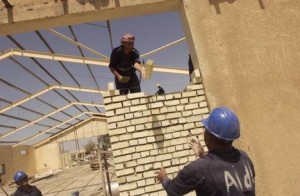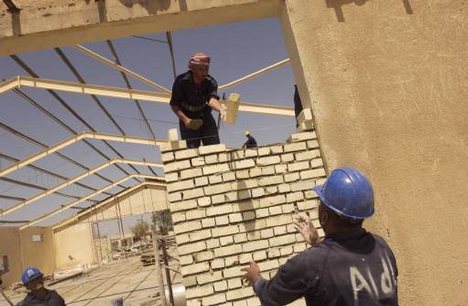 The Confederation of Real Estate Developers’ Associations of India (CREDAI), which started training 200 construction workers on a pilot basis at its Pune centre, has plans to train 20,000 people in the next three years.
The Confederation of Real Estate Developers’ Associations of India (CREDAI), which started training 200 construction workers on a pilot basis at its Pune centre, has plans to train 20,000 people in the next three years.
“We train them at the construction site for three months. We will run it pan-India by this year end depending on the success of the model,” JP Shroff, Chairman of the Labour Committee, CREDAI, said.
The initiative in partnership with the National Skills Development Corporation (NSDC) targets to train 100,000 construction workers over a 10-year period. The cost for the first phase would be Rs 30 crore, of which Rs 12 crore would be given by the developers and contractors, and the rest would be by NSDC under its skill development programme, said Lalit Kumar Jain, National President, CREDAI.
Training institutes for the construction are mushrooming beyond CREDAI as well. L&T also has seven CSTIs at Chennai, Mumbai, Bangalore, Delhi, Ahmedabad, Kolkata and Hyderabad, which together train 6,000-7,000 workers every year. The institute is planning to ramp up its students strength from the current 150 per batch to 200- 400 depending the size of the centres.
On average, it spends Rs 20,000- Rs 5,000 per student. The course covers 20 per cent theory and 80 per cent practical, which is hands-on training in bar bending, steel fixing, electrical trades and masonry.
Apart from L&T, construction companies including Hindustan Construction Company (HCC) and others are providing training at the local level. Mumbai-based Pipal Tree Ventures Private Limited, which has trained 100-150 construction workers on a pilot basis in Nellore district of Andhra Pradesh, aims to train about 15,000 by 2011-12.
Pipal Tree plans to set up 20 construction training schools on a pan-India basis with an investment of Rs 25-30 crore, targeting to train 100,000 construction workers over five years. Pipal Tree, which ventured into the segment in 2007, has so far trained 2,000 workers through its five schools. The training institutes are also developing their curriculum in regional languages such as Telugu, Marathi, Hindi.





